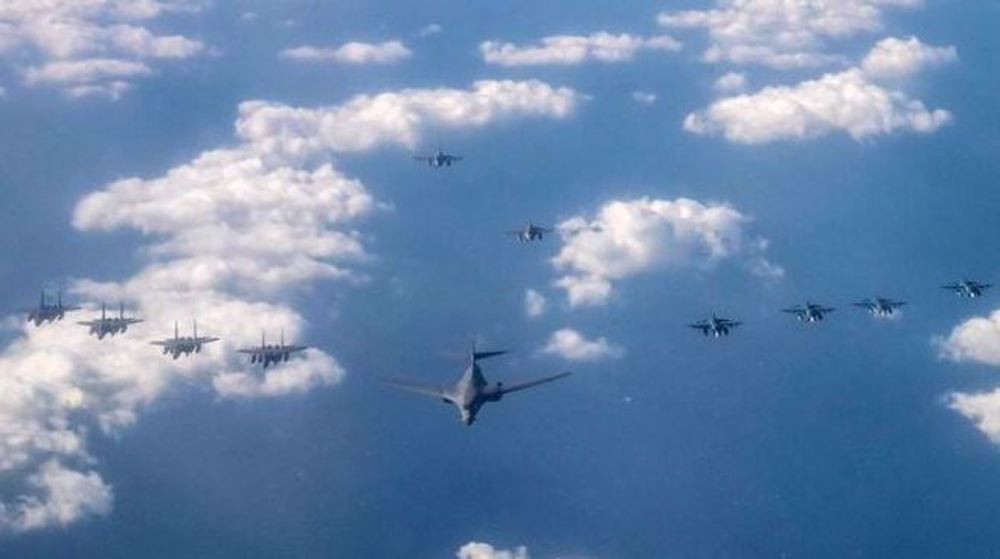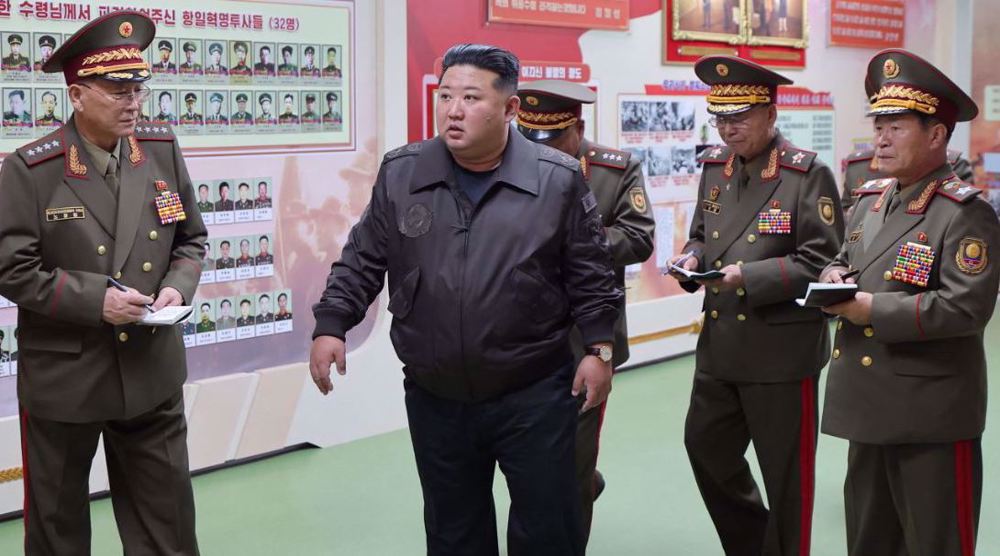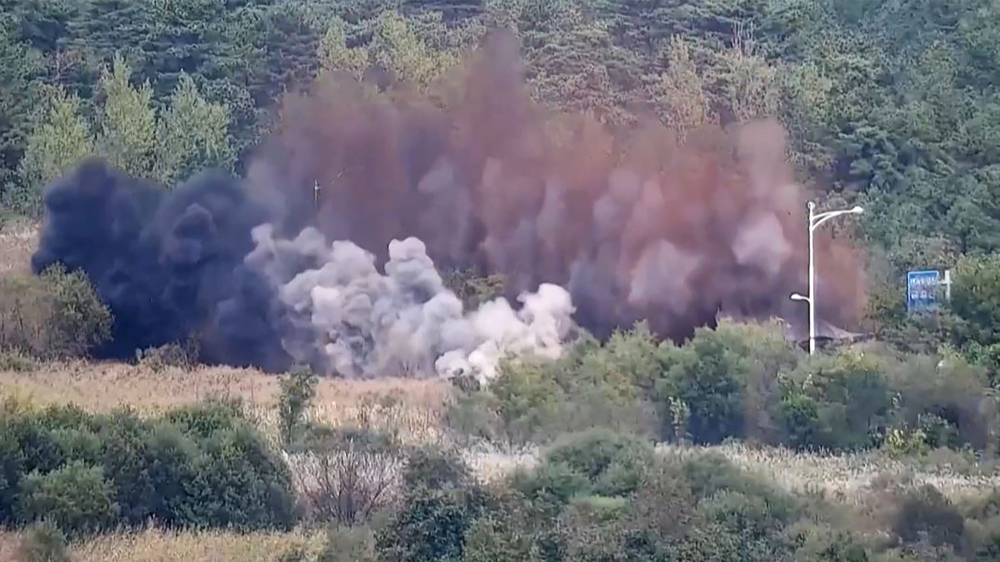South Korea set to terminate intelligence-sharing pact with Japan
South Korea has announced that it would scrap a key intelligence-sharing pact with Japan, a decision that could escalate a dispute over trade and undercut security cooperation on North Korea.
Kim You-geun, the first deputy chief of South Korea’s National Security Council (NSC), said during a press briefing in Seoul on Thursday that the South had chosen to terminate the intelligence-sharing deal because trade restrictions had “caused an important change in security-related cooperation between the two countries.”
He went on to say that Japan created a “grave change” in the environment for bilateral security cooperation by removing South Korea’s fast-track export status.
“Under this situation, we have determined that it would not serve our national interest to maintain an agreement we signed with the aim of exchanging military information which is sensitive to security,” Kim noted.
The decision was announced after an hour-long discussion within the NSC and South Korean President Moon Jae-in approved it.
The General Security of Military Information Agreement (GSOMIA), inked in November 2016, allows the two US allies to share sensitive information on perceived missile threats from North Korea, among other things. It is automatically renewed annually unless one of the countries decides to pull the plug.
The end of the intelligence-sharing pact marks a fresh low point in relations between the two neighbors. Tokyo-Seoul ties have been highly strained recently over trade and historical issues.
Japan protests against South Korea's scrapping of pact
Reacting to the move, Japan's Foreign Minister Taro Kono said in a statement that Tokyo "strongly" protested against South Korea's decision to scrap the pact, calling the move "extremely regrettable".
"I have to say the decision to end the pact by the South Korean government is a complete misjudgment of the current regional security environment and it is extremely regrettable," the statement read.
"We cannot accept the claims by the South Korean side and we will strongly protest against the South Korean government," Kono noted.
Tokyo has already summoned the South Korean ambassador to protest the withdrawal from the pact.
The South Korean decision has also been met with dismay in Washington and is likely to upset ties with the two Asian nation’s top ally.
Pentagon spokesman Lieutenant Colonel Dave Eastburn said in a statement that intelligence sharing is key to developing a common defense policy and strategy.
“We encourage Japan and Korea to work together to resolve their differences,” he said. “I hope they can do this quickly.”
US President Donald Trump had called for improved relations between the two earlier this month, saying heightened tensions between them had put the United States in a “bad position.”
“South Korea and Japan are fighting all the time. They’ve got to get along because it puts us in a bad position,” Trump said at the time. “They’re supposed to be allies.”
South Koreans remain bitter over Japan’s actions during its colonial rule of Korea from 1910 until the end of World War Two.
Relations between the two countries are seen at their lowest since they normalized ties in 1965, plagued by bitterness over Japan’s occupation, which included the use of South Korean forced labor at some Japanese firms.
South Korea had earlier warned it could reconsider the GSOMIA after Japan stripped South Korea of fast-track export status.
South Korea called the Japanese action retaliation for a South Korean Supreme Court order for Japanese companies to compensate some of their wartime forced laborers last October.
Japan condemned the ruling, saying the matter had been resolved by a 1965 treaty for normalization of ties.
The developments also come as the US is losing its influence and China and Russia have been more assertive in the region, flying their first joint military air patrol together in July.
UNRWA warns of humanitarian collapse in Gaza
'Hello my enemies': Lebanese journalist on Israeli threats and his resolve to continue
Outrage in France as MP proposes bill to ban criticism of Israel
VIDEO | The strategy of Hezbollah in war
Israeli military withdraws several brigades from southern Lebanon: Report
48-year-old Palestinian man serving 48 life terms completes 22 years in Israeli jails
From MKO to Tondar, how Germany became safe haven for anti-Iran terror groups
Hamas open to any proposal aiming to end Gaza war: Hamdan












 This makes it easy to access the Press TV website
This makes it easy to access the Press TV website